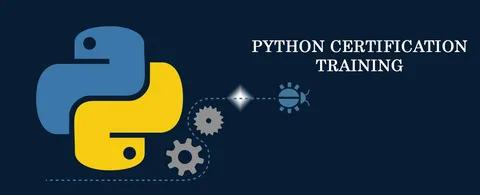Introduction
Python, a versatile and beginner-friendly programming language, has gained immense popularity in recent years. A Python course can equip you with the skills and knowledge to develop various applications, from web development and data analysis to machine learning and automation.
Core Components of a Python Course
A comprehensive Python course typically covers:
- Python Basics: Understanding Python syntax, variables, data types, and control flow.
- Functions and Modules: Creating reusable code blocks and organizing your project structure.
- Object-Oriented Programming (OOP): Learning about classes, objects, inheritance, and polymorphism.
- Data Structures: Working with lists, tuples, dictionaries, and sets.
- File I/O: Reading and writing data to files.
- Error Handling: Implementing exception handling to prevent program crashes.
- Web Development: Building dynamic web applications using frameworks like Django or Flask.
- Data Analysis and Visualization: Using libraries like NumPy, Pandas, and Matplotlib for data manipulation and visualization.
- Machine Learning: Exploring machine learning concepts and building predictive models.
- Automation: Creating scripts to automate repetitive tasks.
Choosing the Right Python Course
Selecting the right Python course is crucial for effective learning. Consider the following factors:
- Course Structure: Evaluate the curriculum, teaching methods, and practical projects.
- Instructor Expertise: Look for instructors with hands-on experience in Python programming.
- Hands-On Practice: Prioritize courses with ample opportunities for coding exercises and projects.
- Industry Relevance: Ensure the course covers current Python trends and best practices.
- Course Duration: Choose a course that aligns with your learning pace and goals.
- Cost and Location: Compare course fees and locations to find the best fit.
Live training lab offer hands-on, interactive learning experiences that allow participants to apply real-world skills in a simulated environment, enhancing their practical knowledge and readiness.
Building a Successful Python Career
To excel in Python course, focus on:
- Continuous Learning: Stay updated with new Python features and libraries.
- Project Development: Build a portfolio of Python projects to showcase your skills.
- Networking: Connect with other Python developers and industry professionals.
- Online Communities: Participate in online forums and communities to learn from others and share your knowledge.
- Freelancing or Internships: Gain practical experience and build a client base.
Explore the flexibility of Python online course in USA, designed to help you master programming skills at your own pace with expert guidance and practical projects.
The Future of Python
Python's popularity continues to grow due to its versatility, readability, and extensive libraries. Emerging trends in Python course include:
- Data Science and Machine Learning: Python is a leading language for data analysis and building predictive models.
- Web Development: Python frameworks like Django and Flask are widely used for web application development.
- Automation: Python is ideal for automating tasks and improving efficiency.
- Scientific Computing: Python is used in various scientific fields for simulations, data analysis, and visualization.
Conclusion
A Python course can be the stepping stone to a fulfilling career in programming. By acquiring the necessary skills and staying updated with industry trends, you can develop valuable applications and contribute to the digital world.



